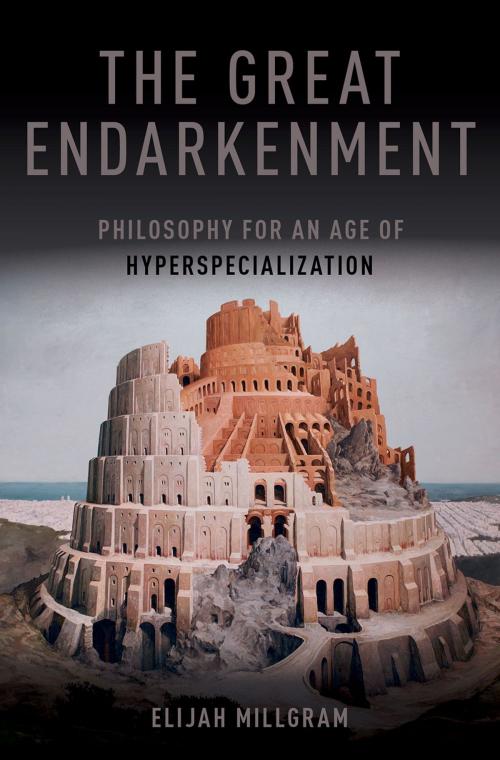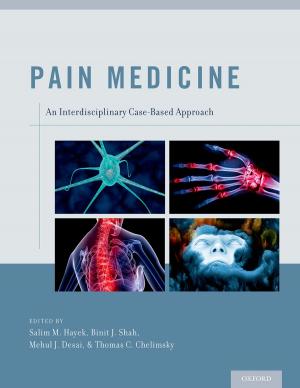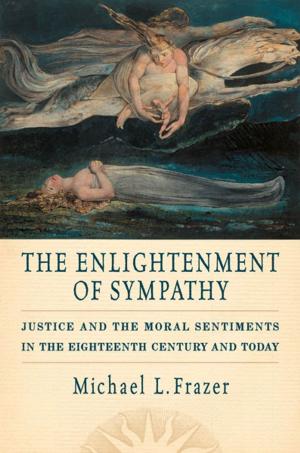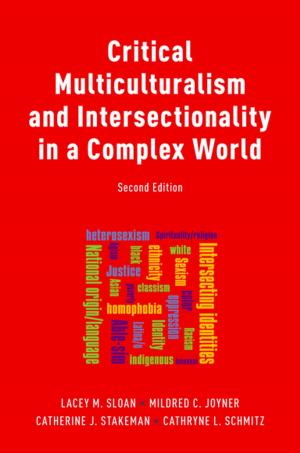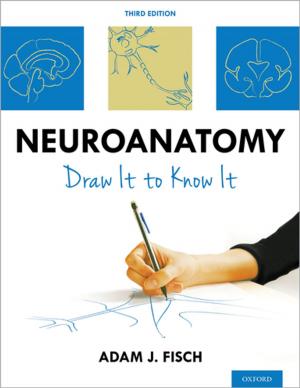The Great Endarkenment
Philosophy for an Age of Hyperspecialization
Nonfiction, Religion & Spirituality, Philosophy, Metaphysics, Ethics & Moral Philosophy| Author: | Elijah Millgram | ISBN: | 9780190297596 |
| Publisher: | Oxford University Press | Publication: | June 1, 2015 |
| Imprint: | Oxford University Press | Language: | English |
| Author: | Elijah Millgram |
| ISBN: | 9780190297596 |
| Publisher: | Oxford University Press |
| Publication: | June 1, 2015 |
| Imprint: | Oxford University Press |
| Language: | English |
Human beings have always been specialists, but over the past two centuries division of labor has become deeper, ubiquitous, and much more fluid. The form it now takes brings in its wake a series of problems that are simultaneously philosophical and practical, having to do with coordinating the activities of experts in different disciplines who do not understand one another. Because these problems are unrecognized, and because we do not have solutions for them, we are on the verge of an age in which decisions that depend on understanding more than one discipline at a time will be made badly. Since so many decisions do require multidisciplinary knowledge, these philosophical problems are urgent. Some of the puzzles that have traditionally been on philosophers' agendas have to do with intellectual devices developed to handle less extreme forms of specialization. Two of these, necessity and the practical `ought', are given extended treatment in Elijah Millgram's The Great Endarkenment. In this collection of essays, both previously published and new, Millgram pays special attention to ways a focus on cognitive function reframes familiar debates in metaethics and metaphysics. Consequences of hyperspecialization for the theory of practical rationality, for our conception of agency, and for ethics are laid out and discussed. An Afterword considers whether and how philosophers can contribute to solving the very pressing problems created by contemporary division of labor. "These always interesting, often brilliant, and contentious essays focus on the question of how we need to reason practically, if we are to flourish, given Millgram's account of our human nature and of the environments that we inhabit. The originality of his thought is matched by his clarity and his wit."--Alasdair MacIntyre, University of Notre Dame
Human beings have always been specialists, but over the past two centuries division of labor has become deeper, ubiquitous, and much more fluid. The form it now takes brings in its wake a series of problems that are simultaneously philosophical and practical, having to do with coordinating the activities of experts in different disciplines who do not understand one another. Because these problems are unrecognized, and because we do not have solutions for them, we are on the verge of an age in which decisions that depend on understanding more than one discipline at a time will be made badly. Since so many decisions do require multidisciplinary knowledge, these philosophical problems are urgent. Some of the puzzles that have traditionally been on philosophers' agendas have to do with intellectual devices developed to handle less extreme forms of specialization. Two of these, necessity and the practical `ought', are given extended treatment in Elijah Millgram's The Great Endarkenment. In this collection of essays, both previously published and new, Millgram pays special attention to ways a focus on cognitive function reframes familiar debates in metaethics and metaphysics. Consequences of hyperspecialization for the theory of practical rationality, for our conception of agency, and for ethics are laid out and discussed. An Afterword considers whether and how philosophers can contribute to solving the very pressing problems created by contemporary division of labor. "These always interesting, often brilliant, and contentious essays focus on the question of how we need to reason practically, if we are to flourish, given Millgram's account of our human nature and of the environments that we inhabit. The originality of his thought is matched by his clarity and his wit."--Alasdair MacIntyre, University of Notre Dame
